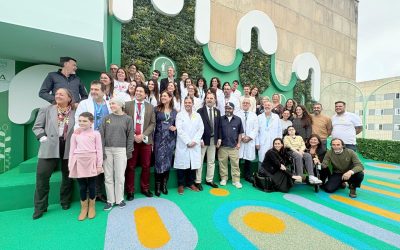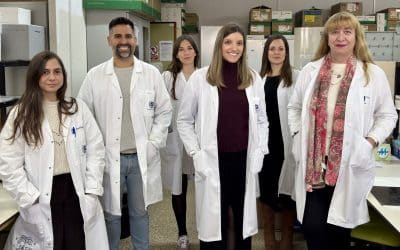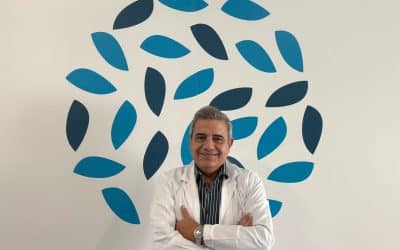This team, which conducted the study in collaboration with Imperial College London, analysed the presence and functionality of allergen antibodies in the serum and nasal washings of patients with local respiratory allergy during a course of allergen immunotherapy treatment.
The multidisciplinary allergy team at the Malaga Biomedical Research Institute and Nanomedicine Platform (IBIMA Plataforma BIONAND) has published an original article, the result of a collaboration with Prof. M. Shamji from Imperial College London (UK), which identifies the mechanisms by which allergen immunotherapy is effective in patients with local respiratory allergy.
The work has been published in the journal Allergy and is co-led by researchers from the ‘Allergic Diseases to Drugs and Allergens’ group, whose responsible researchers are the professor of the University of Malaga (UMA) and scientific coordinator of the ‘Autoimmune, Infectious, Inflammatory and Allergic Diseases’ area of IBIMA Plataforma BIONAND, Dr. María José Torres and Dr. Cristobalina Mayorga, co-investigator responsible for the Allergy group.
Local respiratory allergy is a type of inflammatory airway disease (rhinitis, conjunctivitis and asthma) that is caused by exposure to environmental allergens, but where the usual skin and blood allergy tests are negative. To diagnose this entity it is necessary to perform respiratory provocations with allergens.
This IBIMA Plataforma BIONAND group has pioneered the description and clinical characterisation of this type of respiratory allergy, has also investigated its immunological mechanisms, and has greatly facilitated its diagnosis by standardising nasal, conjunctival and bronchial allergen provocation tests. It has also analysed the usefulness of laboratory tests on blood samples to identify individuals with this disease without the need to resort to allergen challenge, which is more uncomfortable for patients.
One of the main contributions of the Malaga group has been to evaluate the usefulness of allergen immunotherapy for the treatment of local respiratory allergy. This treatment is very safe and effective in patients with classical respiratory allergy -with positive skin tests-, where it also prevents the aggravation and progression of the disease. The work of the Malaga group has demonstrated that allergen immunotherapy also has a beneficial effect in most patients with local respiratory allergy. However, the mechanisms by which the treatment is effective, as well as the factors that predict which patients will respond, remain to be investigated.
To address these challenges, the Malaga group established a collaboration with Prof. M. Shamji from Imperial College London, a world expert in the mechanisms of action of allergen immunotherapy and in the identification of biomarkers of response to this treatment. To develop this work, Dr. Ibon Eguíluz, allergist at the Regional University Hospital of Malaga and senior researcher at IBIMA Plataforma BIONAND carried out a research stay in London (United Kingdom) in 2018. The article that has recently seen the light of day is the result of this collaboration.
The study, published by Dr Cristobalina Mayorga, Dr María José Torres and Dr Carmen Rondón, as well as Dr Eguíluz, shows that allergen immunotherapy modulates the type of antibody that the immune system synthesises against environmental allergens. In this way, the immune system switches from IgE - an allergic antibody - to IgG4 or IgA - antibodies that promote tolerance. In addition, the work also shows that newly synthesised IgG4 or IgA is able to trap the allergen in the airway before it can induce inflammation at the nasal, conjunctival or bronchial level.
Dr Eguíluz pointed out that ‘this work has investigated for the first time why allergen immunotherapy works in patients with local respiratory allergy. Previously we only had clinical trials demonstrating its efficacy and safety, but we did not know why this was the case. Dr Eguíluz added that ‘our study has identified measurable factors in serum and nasal secretion that allow us to differentiate between responders and non-responders’. Therefore, in the words of the researcher himself, ‘this work will translate into two very important benefits for patients. Firstly, it will be possible to identify responders and non-responders before starting treatment, thus avoiding long and ineffective therapies. On the other hand, it will also be possible to develop new optimised treatments with accelerated and maximised efficacy for patients with local respiratory allergy’.
Based on these results, the group will develop analytical batteries measurable in easily obtainable samples - blood or nasal secretions - to identify patients with local respiratory allergy - rhinitis, conjunctivitis and asthma - most likely to respond to allergen immunotherapy. This will avoid long, costly and ineffective treatments, as allergen immunotherapy needs to be administered over 3-5 years to achieve its greatest clinical benefit. In addition, researchers at the IBIMA BIONAND Platform will also collaborate with the technology industry to develop new allergen immunotherapy modalities with greater potential for success in patients with allergic respiratory disease.



